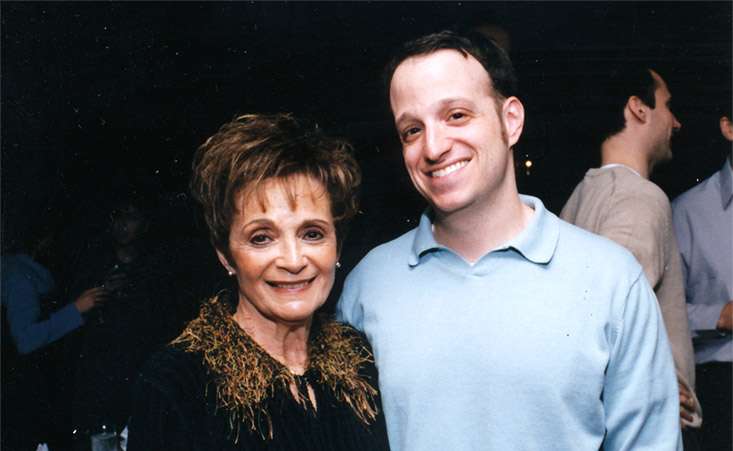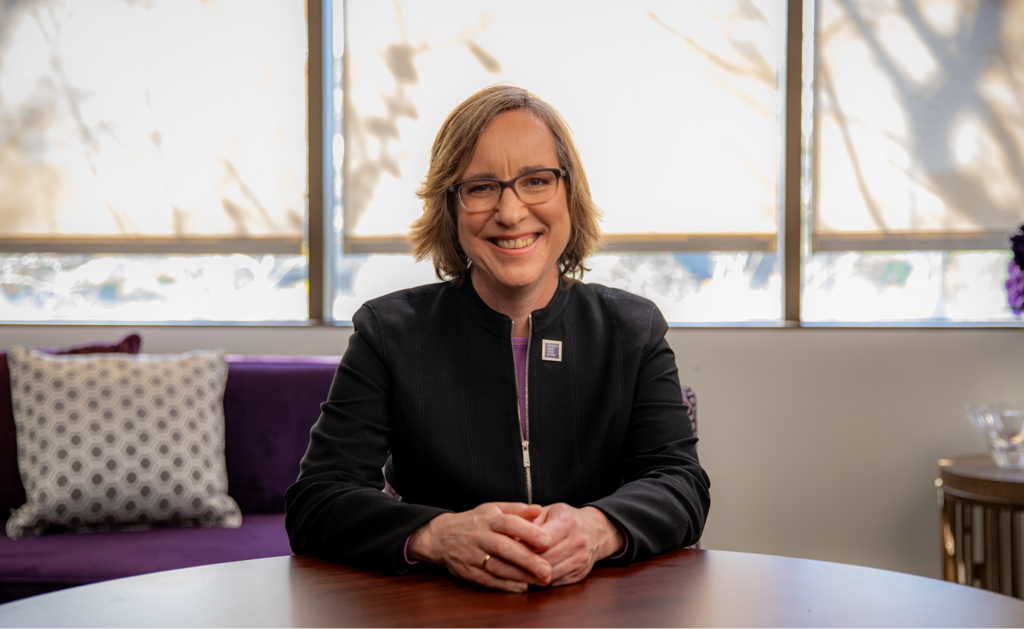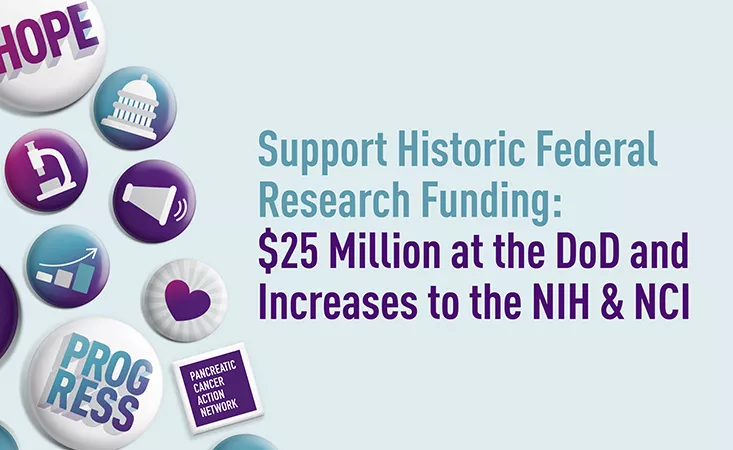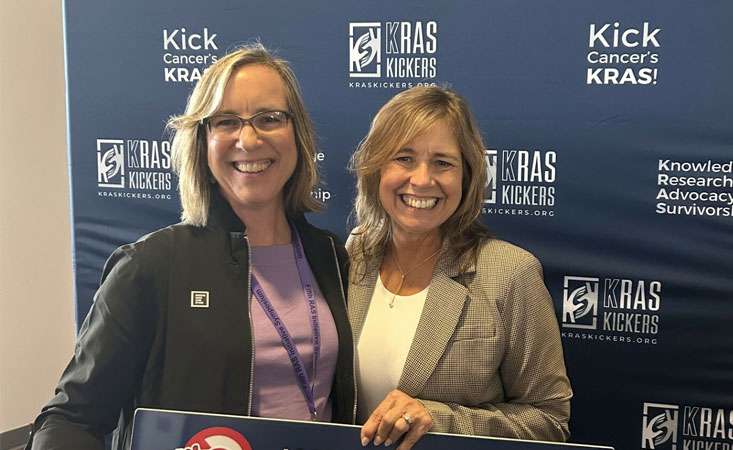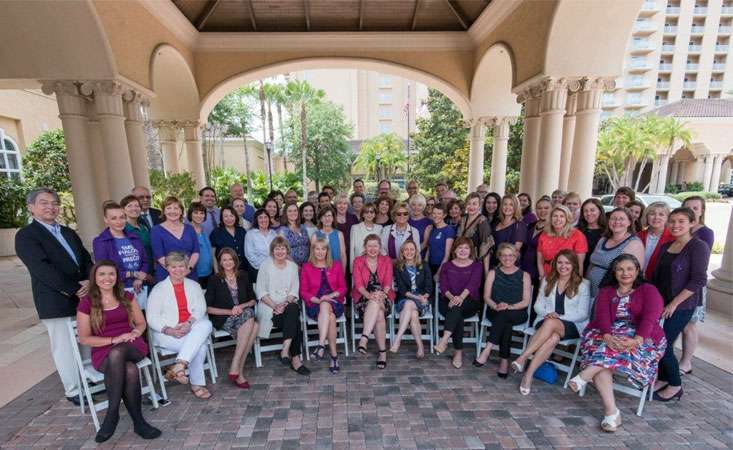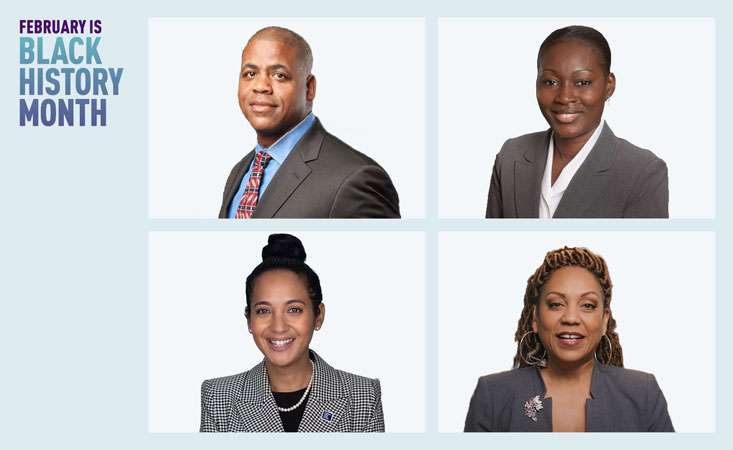
PanCAN’s new Health Equity Committee brings together a diverse group focused on one goal: advancing health equity for all those impacted by pancreatic cancer. It’s a complex undertaking, but one that is vital to PanCAN’s mission. Here are just a few members of the group and what motivates them in the work they are doing.
Empowering Patients With Knowledge
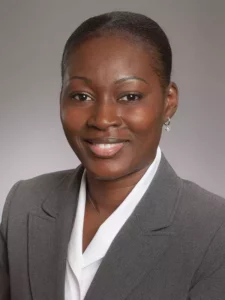 As a licensed and certified genetic counselor at Emory Winship Cancer Institute in Atlanta, Fabienne Ehivet, MS, CGC, talks with patients about how genetic risk factors may affect them or their families.
As a licensed and certified genetic counselor at Emory Winship Cancer Institute in Atlanta, Fabienne Ehivet, MS, CGC, talks with patients about how genetic risk factors may affect them or their families.
Fabienne is especially passionate about increasing awareness of the benefits of genetic counseling in the Black community. Generations of systemic racism means many people are wary of genetic testing and counseling.
“There’s a lot of mistrust of the medical field,” she said. “Worries about discrimination. Fear of being taken advantage of, or not being cared for, can affect their interest in getting genetic counseling or testing, unfortunately.”
Her role as a genetic counselor is to not only provide information but also to support patients as they go through the process. This opportunity to make a difference in the lives of people affected by cancer is what drew her to the field.
“Helping patients, being there for them, guiding them and taking time with them – that’s important,” she said. “The journey of a cancer diagnosis can be confusing. We try to help make sense of everything for them.”
An Advocate for PanCAN
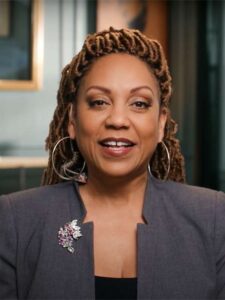 Pancreatic cancer survivor Teona Ducre is committed to raising awareness of the signs and symptoms of the disease. And she wants everyone – but especially those in the Black community -- to feel empowered to ask questions and advocate for themselves.
Pancreatic cancer survivor Teona Ducre is committed to raising awareness of the signs and symptoms of the disease. And she wants everyone – but especially those in the Black community -- to feel empowered to ask questions and advocate for themselves.
“Advocate, advocate, advocate,” she said. “Members of the Black community often put the needs of others first. We need to prioritize our health and our needs so that we can live longer, better, healthier lives.”
After her own diagnosis in 2016, she turned to PanCAN right away. She spoke to a Case Manager who talked through treatment options and provided a list of pancreatic cancer specialists in her area. She also participated in PanCAN’s Know Your Tumor® precision service. Looking back, she feels grateful that her cancer was caught early so that surgery was an option.
Now, she’s focused on helping others affected by pancreatic cancer. In addition to completing a term of service on PanCAN’s Survivor Council, she’s appeared in public service announcements for PanCAN and has been a panelist for a webinar focused on pancreatic cancer in the Black community.
Even though she knows there is much more work to be done, Teona is optimistic about where we are headed.
“Step by step we’ve made progress,” she said. “It’s so rewarding to know that I – along with so many other people – played a role in getting there. And we’re still going.”
Advancing Equitable Access to Health Care
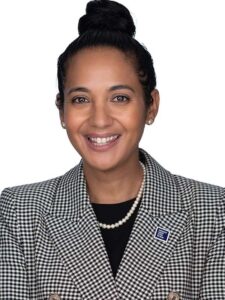 Nicolette Juliana Rodriguez, MD, MPH, is on the front lines of making critical health care more accessible to all. She earned a PanCAN Catalyst Award for the REGENERATE study, which stands for Racial/ethnic Equity in Genetic Education, Risk Assessment and Testing. The study aims to understand what Black and Latino/a/x/ people think about genetic education and testing, with a goal to improve access to genetics care and make it more equitable.
Nicolette Juliana Rodriguez, MD, MPH, is on the front lines of making critical health care more accessible to all. She earned a PanCAN Catalyst Award for the REGENERATE study, which stands for Racial/ethnic Equity in Genetic Education, Risk Assessment and Testing. The study aims to understand what Black and Latino/a/x/ people think about genetic education and testing, with a goal to improve access to genetics care and make it more equitable.
The cause is personal for Dr. Rodriguez, who is a gastroenterologist at Brigham and Women’s Hospital and an early career investigator in the Division of Cancer Genetics and Prevention at Dana-Farber Cancer Institute.
“As a first-generation Latina, it really is a project that is near and dear to my heart,” she said. “I have seen firsthand the difficulties that my own family has had interacting with the healthcare system. And I want to learn: How can I make it easier for Black and Latino/a/x patients who are at risk for pancreatic cancer to get cancer prevention care?”
Read more about Dr. Rodriguez.
A Continued Commitment to Patients and Families
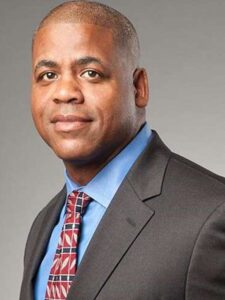 Rod Williams got involved with PanCAN after losing his brother-in-law, Andre, to the disease. He sees Patient Services as filling a vital need for patients and families, especially for those who may face barriers to accessing healthcare.
Rod Williams got involved with PanCAN after losing his brother-in-law, Andre, to the disease. He sees Patient Services as filling a vital need for patients and families, especially for those who may face barriers to accessing healthcare.
“[PanCAN has] an incredible network of staff in place to provide critical information,” he said. “Having a support system of caregivers, families, friends, healthcare professionals and a patient advocate is important to address and manage the needs of this patient population.”
As a member of PanCAN’s Board of Directors, he’s been inspired by the organization’s ongoing work to reach people in underserved communities. Part of what motivated him to get involved is this commitment to health equity.
“I’m excited to see PanCAN increase its educational outreach efforts in the Black and Latino communities,” he said. “I strongly believe that many of the initiatives that PanCAN continues to fund through grants and advanced research is contributing to the persistent increase in the survival rate for patients who are diagnosed with pancreatic cancer.”
It takes a village to achieve these things, Rod said, and PanCAN is lucky to have one that is stronger than ever.
“What is really exciting for me is the continued commitment from our volunteers, donors and industry partners that enables PanCAN to support innovation that is improving health outcomes and quality of life for patients.”
Hear more from Rod in a recent PanCAN webinar.






